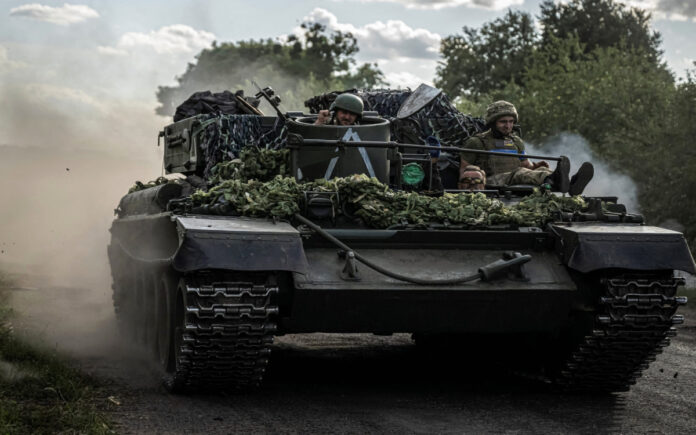Moscow/Kyiv: On August 14, Ukraine announced that its forces had advanced further into Russia’s Kursk region, marking the most significant incursion into Russian territory since World War II. The offensive, which began on August 6, has now impacted at least three regions in Russia, presenting a major security challenge for President Vladimir Putin.
“We continue to advance further in the Kursk region,” Ukraine’s President Volodymyr Zelensky wrote on Telegram. “We’ve pushed forward by one to two kilometers in various areas since the start of the day, and over 100 Russian prisoners of war have been taken during this period.”
Russia’s National Guard Enhances Security Measures
In response to the Ukrainian advance, Russia’s National Guard has ramped up security, particularly around the Kursk nuclear power plant, which lies just 35 kilometers from the frontlines. According to a Ukrainian commander quoted by CNN, Russia has begun pulling reserve forces from other regions, including Zaporizhzhia, Crimea, and Kharkiv, to bolster defenses in Kursk.
“(The Russians) are now trying to stop our advance; they have pulled in reserves, which has benefited our defense forces in other areas, because it has become easier to work there,” the Ukrainian commander stated.
Kyiv Establishing Security Zone in Russia
Earlier, Kyiv announced its intention to establish a “security zone” on Russian soil to protect Ukrainian border regions. Ukrainian Minister for Reintegration of Temporarily Occupied Territories, Iryna Vereshchuk, confirmed, “The Ukrainian Defense Forces are creating a security zone on the territory of the Russian Federation adjacent to the territory of Ukraine.”
Also Read | AIBA Calls for Comprehensive Investigation into Hindenburg Report, Labels It an ‘International Conspiracy’
India Issues Advisory
In light of the escalating situation, the Indian embassy in Moscow issued an advisory on Wednesday, urging citizens to avoid traveling to the affected regions of Bryansk, Belgorod, and Kursk. The embassy has also provided a hotline number and an email address for those in need of assistance.
This comes after Belgorod Governor Vyacheslav Gladkov described the situation on the ground as “extremely difficult and tense,” noting that the attacks have destroyed homes and caused civilian casualties.



